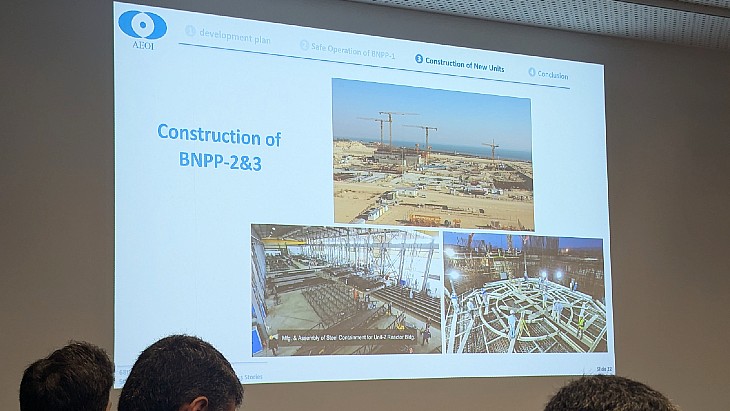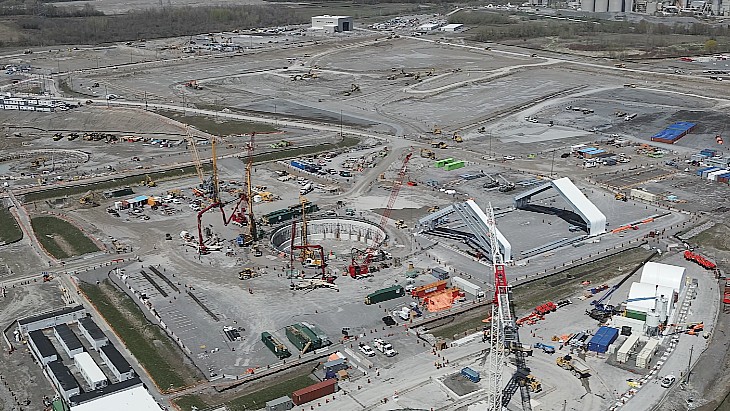China to supply Bangladesh with irradiation plant
.jpg)
CIRC - a subsidiary of China Baoyuan Investment Company Ltd, which is itself part of China National Nuclear Corporation (CNNC) - noted that it marks the "first such project commissioned by a foreign government institution to CIRC and the first overseas EPC project won by CIRC". The value of the contract was not disclosed.
The irradiation facility has a design capacity of more than one million curies and is mainly designed to disinfect and sterilise bacteria on foods, medical devices, pharmaceuticals and cosmetics, conduct quarantine inspections and extend the shelf life of relevant products.
CIRC noted that irradiation is a mandatory requirement for the export of relevant products and "boasts tremendous market potential" in the Belt and Road Initiative (BRI) countries and regions.
"The successful bid for the irradiation station project in Bangladesh is the result of coordinated efforts taken by the CIRC and other subsidiaries of the CNNC to further strengthen their collaboration and complement each other in their overseas development," CNNC said. "It is expected to produce positive demonstration effects in the BRI countries of South Asia, help CNNC enhance its international influence, and advance the cooperation in all industrial chains for better results."
CIRC is the largest nuclear enterprise in the aspects of research and development, manufacture, distribution and service of nuclear products in China. It is mainly engaged in research and application of radioisotope and radiation technology, covering radioisotope preparation by nuclear reactor and cyclotron, radiopharmaceuticals, radioactive sources, radiation engineering and processing, etc. CIRC has three radiopharmaceutical manufacturing and research bases, located in Beijing, Chengdu and Shenzhen.
BINA was established in July 1972 and conducts research in the areas of: crop improvement through induced mutation; biotechnology; soil management and biofertilisers; irrigation and water management; pest management; physiological aspects of crop productivity; crop management; improvement of horticultural crops; technology transfer and impact assessment; and socio-economic research.
BINA has so far succeeded in developing and releasing 125 modern varieties of 19 important crops by using nuclear techniques and these varieties are now making significant contributing to raise the agricultural productivity of Bangladesh. It has also been able to identify nine rhizobial inocula for fixing higher biological nitrogen in soils to increase the seed yield of bean, pulses and oil crops.
Russia is constructing Bangladesh's first nuclear power plant at Rooppur, 160 kilometres from the capital Dhaka. It features two Russian VVER-1200 reactors. Construction of the first unit began in November 2017, with the start of construction of the second unit following in July 2018. The first unit is scheduled to be commissioned later this year.
_92619.jpg)

_84504.jpg)








